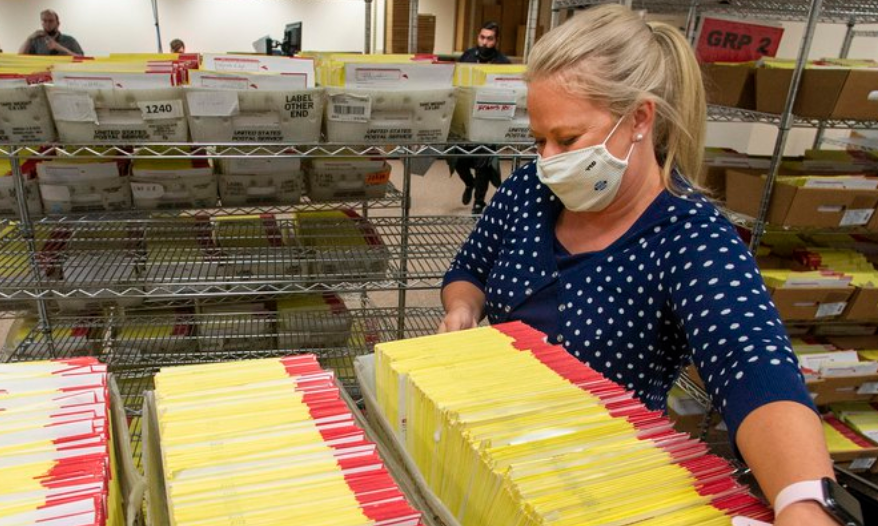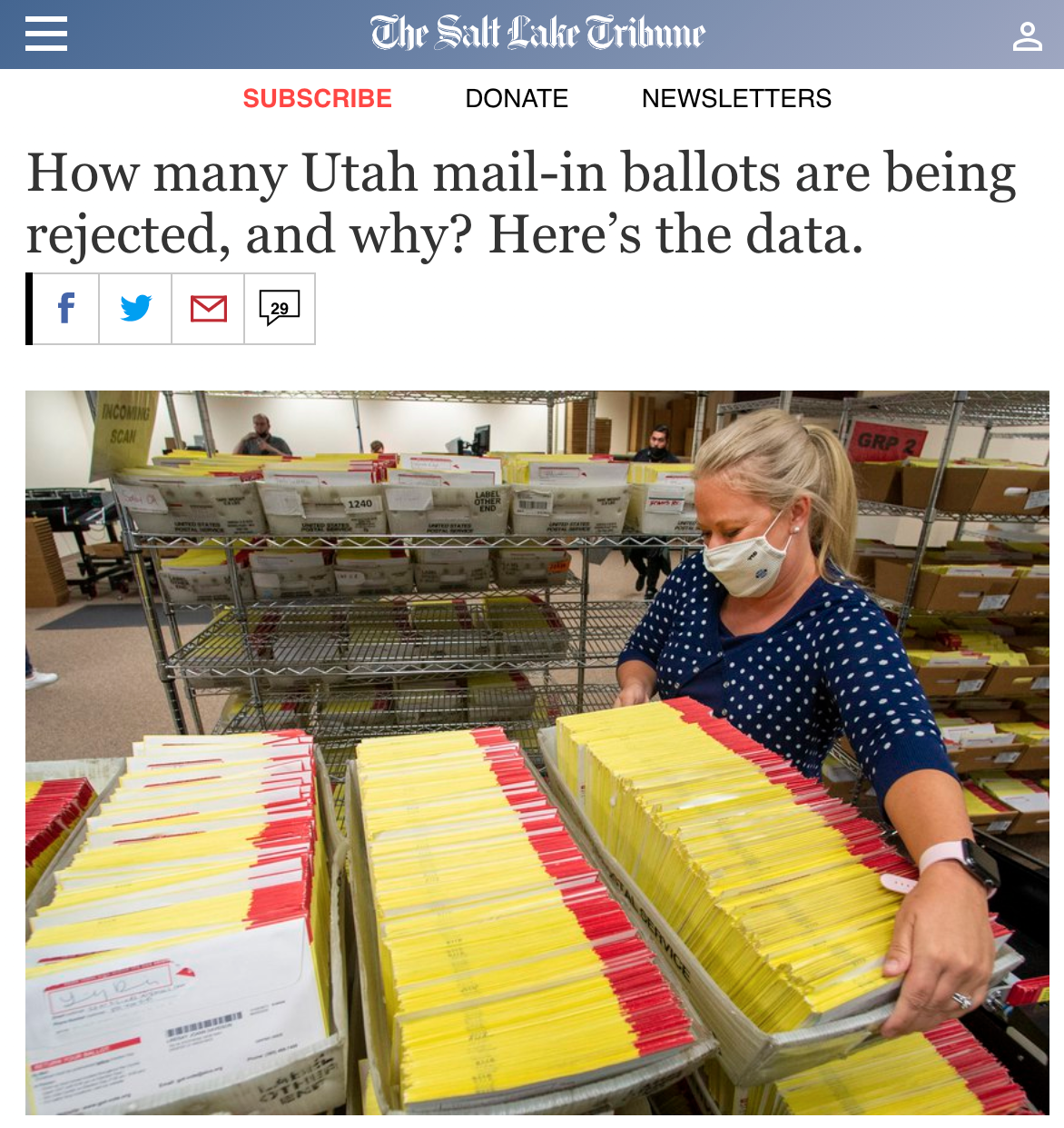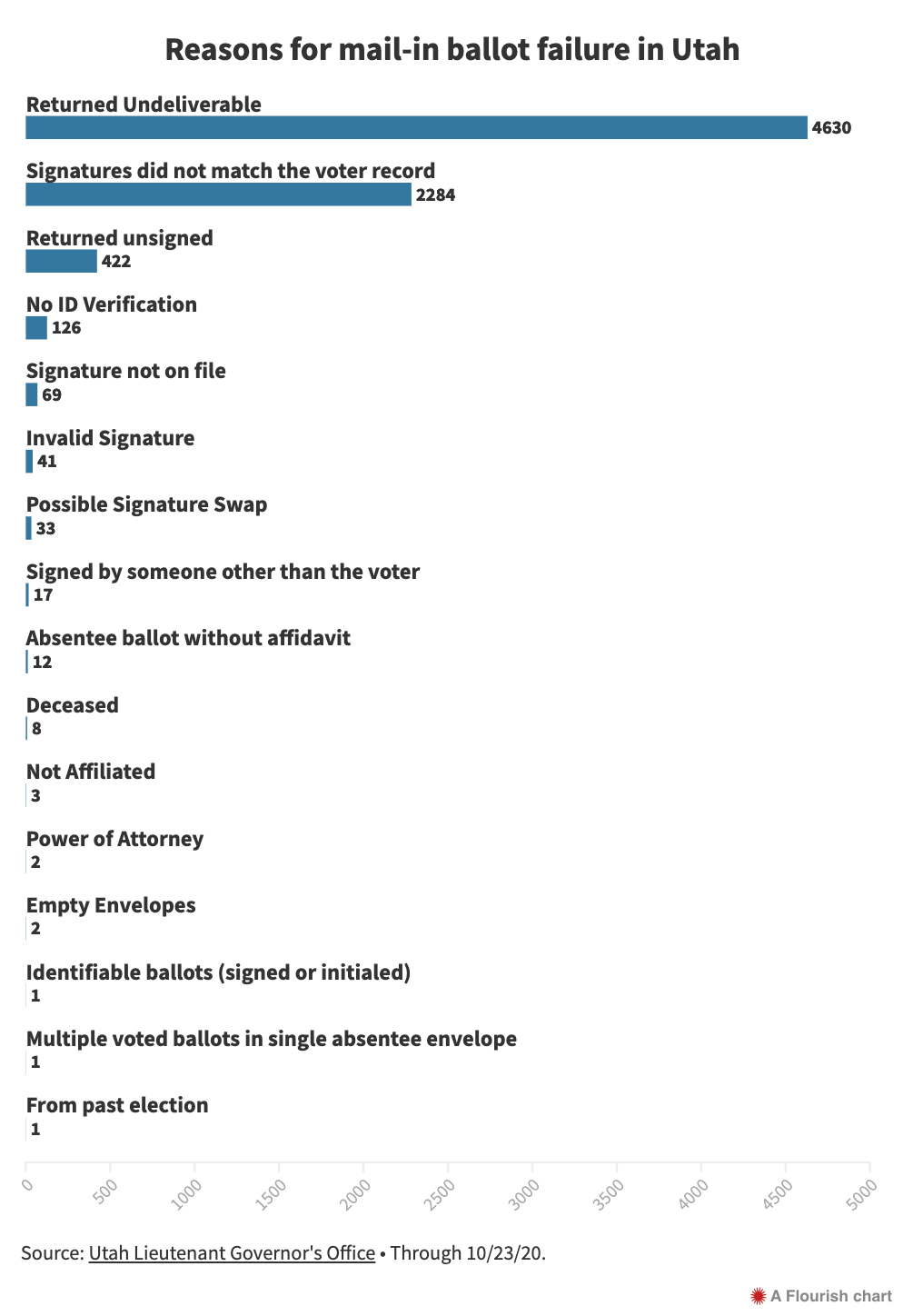The Salt Lake Tribune needs to immediately retract this story.
I was told explicitly that it is totally impossible for anything to ever go wrong with mail-in voting.
They said that anyone who said it was possible was a flat earth conspiracy theorist.
So this must be fake news.
How often do mail-in ballots in Utah have something wrong with them? And when they do, what happens?
Thanks to data from the Lieutenant Governor’s Office, which runs the election in Utah, we know how many ballots have been sent to voters, and how many of those have been successfully processed so far. We also know about the flip side of the coin: when those ballots are rejected.
In Utah’s database of about 1.1 million public registered voters, we have 7,653 examples of ballot failures as of Friday, or about 0.7% of ballots sent.
About two-thirds of the 7,653 were marked as “returned undeliverable” — that is, the ballot was unable to reach the registered voter, so the Postal Service returned it to the government. The USPS says that about 75% of mail returned as undeliverable is because the intended recipient has moved. A further 12% is from the lack of necessary address information, like a missing apartment number.
If you’ve moved recently, you’ll want to verify that your address is correct. Utahns can still update their registration online by 5 p.m Friday, and can do so in person until Election Day.
Of the remaining failed ballots, 2,284 were marked as “Signatures did not match the voter record.” There were also 422 times when someone forgot to sign, 69 times when the county didn’t have a signature anywhere on file for the voter, 41 times when a signature was marked “invalid,” 33 detected “possible signature swaps” (where a husband might have signed a wife’s ballot and vice versa), and 17 times where they clearly identified that a ballot was “signed by someone other than the voter.”
That last one is voter fraud — a felony. While they’ll likely be lenient on you unless the fraud is grievous, it’s still not worth the attempt, and they’re not going to count it anyway. Officials have said in the past this is often parents signing a ballot for their son and daughter on a mission for The Church of Jesus Christ of Latter-day Saints.
In all, we’ll add those up to get about 2,800 signature failures, or about 1% of total ballots that have been processed so far. As longtime Salt Lake County Clerk Sherrie Swensen explained to Salt Lake Tribune columnist Robert Gehrke last week, election officials go through several steps to try to find a similar signature for the voter before rejecting it outright.
Oh, okay.
So it’s only 1% of total ballots.
No election was ever won or lost by 1%.
No big deal.
Anyway, having a completely fake election is better than sending people to the polls and then everyone dying from the coronavirus.
This virus is no joke.
It kills you immediately like it’s nothing.


